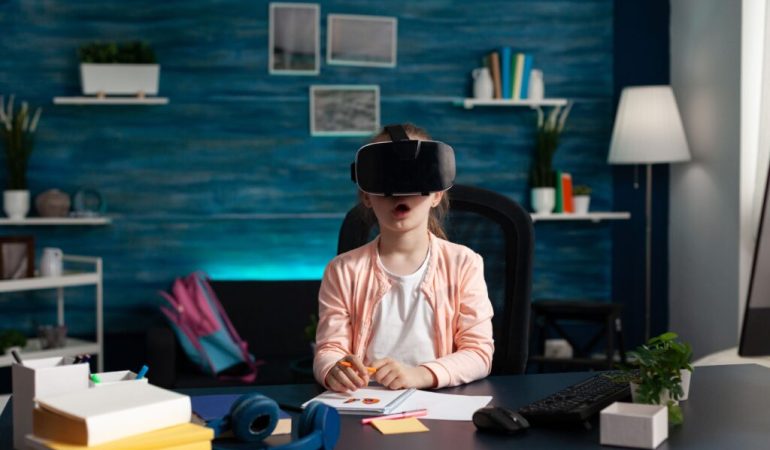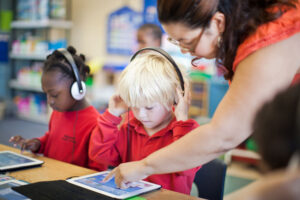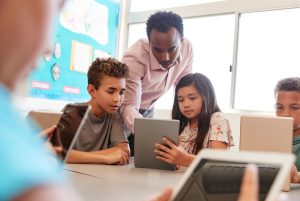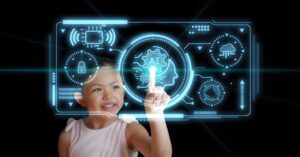
Blended Learning and Education for the Future
Course Description
The Blended Learning and Education for the Future Course is an educational program that focuses on the future of education trends and hybrid learning approaches. The course teaches teachers how to use the hybrid learning model, which combines technology and face-to-face teaching to provide students with the best possible learning experience.
The course also aims to equip teachers with the necessary skills to prepare for future education models by addressing future education trends such as personalized learning, digital education tools, and updated learning.
This course offers educators high-quality educational materials, learning opportunities, and collaboration opportunities. Throughout the course, teachers will work together to develop learning materials, discuss hybrid learning and future education trends, and have the opportunity to practice.
The Blended Learning and Education for the Future Course is designed to provide teachers with the skills they need to provide their students with the best possible learning experiences. Through this course, educators can contribute to their students’ future success by providing them with appropriate and effective learning experiences.
Course Objectives:
- To provide the necessary skills to understand and apply the hybrid learning model.
- To provide the necessary skills to develop learning materials using digital technologies.
- To be familiar with future education trends such as personalized learning, digital education tools, and updated learning, and to create appropriate teaching materials accordingly.
- To understand how learning materials, tools, and technologies can be used to enhance students’ learning experiences.
- To identify appropriate criteria to assess learning materials and measure student success.
- To learn pedagogical strategies and approaches necessary for implementing the hybrid learning model.
- To collaborate and share experiences with colleagues to learn.
- To develop an open attitude towards learning and be willing to continuously improve themselves and their students.
These objectives aim to provide teachers with a comprehensive understanding of future education trends and the hybrid learning model, equip them with the necessary skills to provide students with the best possible learning experiences, and allow teachers to continuously improve themselves.
Learning Outcomes
- Understand the concept of blended learning and its advantages in the educational process.
- Design and develop blended learning materials using a variety of digital tools.
- Analyze and evaluate the effectiveness of blended learning activities and adapt them to fit different learning styles and abilities.
- Implement various pedagogical strategies and approaches necessary for blended learning.
- Identify and apply various techniques for assessing and measuring student success in a blended learning environment.
- Be familiar with future education trends such as personalized learning, digital education tools, and updated learning, and create appropriate teaching materials accordingly.
- Foster a collaborative and open attitude towards learning and sharing experiences with colleagues.
- Continuously improve their teaching skills and their ability to provide students with the best possible learning experiences.
Programme of training activities day-by-day:
Day 1:
- Ice-breaking and trust-building activities for effective and positive interaction throughout the course
- Introducing participants’ schools
- An overview of the hybrid learning model
- Advantages and disadvantages of the hybrid learning model
Day 2:
- Personalized learning approaches
- Basic skills for developing digital learning materials
- Using technology to enhance students’ learning experiences
- Determining criteria for evaluating learning materials and measuring student success
Day 3:
- How teachers can use digital education tools and resources
- Methods for creating digital learning materials for teachers
- Using digital tools to engage and retain students’ interest in learning
- Digital tools for personalizing students’ learning experiences
Day 4:
- Examining pedagogical strategies and approaches
- Identifying suitable pedagogical strategies for the hybrid learning model
- Teachers’ responsibilities regarding the hybrid learning model
- Digital tools for measuring student success
- Discussion and exchange of ideas on future educational trends
Day 5:
- Course evaluation: Discussion and evaluation of the skills acquired, feedback, and course content
- Sharing course documents and records
- Awarding the Course Participation Certificate
To follow
Trainees will be given hard copies of all course materials that they can present to their colleagues in their organization to spark interest in the strategies learned during the training course.
In addition, a mailing list of participants will be created to exchange ideas/experiences.
Self-assessment materials will be provided.
At the end of the course, participants will fill out a questionnaire to get detailed feedback on the effectiveness of the training event.
Course Info
- Duration: 5 Days
- Location: Antalya
- Cost: €80-Day
- Certificate: Yes
- Prerequisites: No











